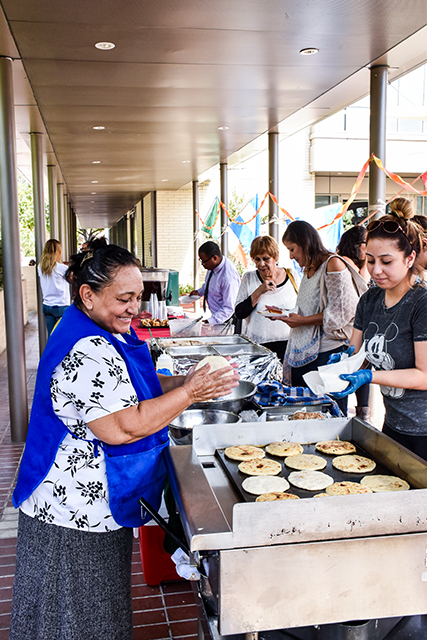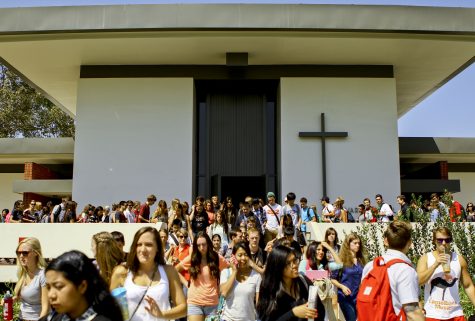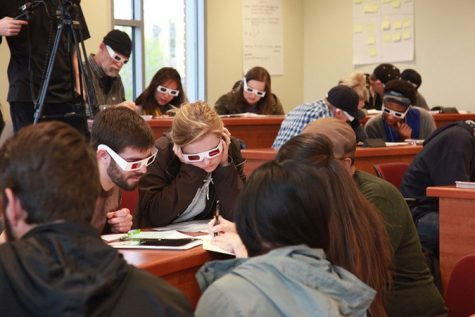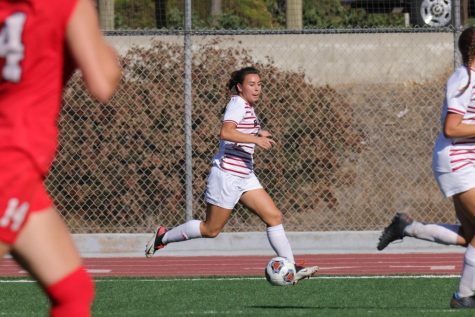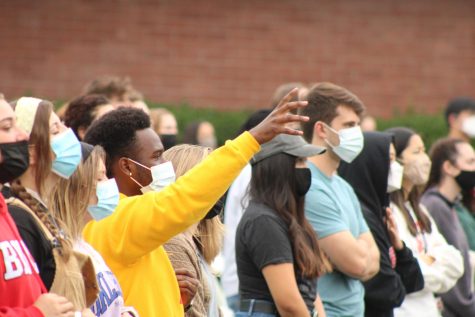Hispanic cuisine unites cultures
Unidos club host annual Latin kitchen event.
October 11, 2016
Students and faculty lined up by the flags of Spanish-speaking countries for a taste of authentic food from different countries as Selena Quintanilla’s voice rang from the speakers as a last celebration for this year’s Hispanic heritage month. Cooks served pupusas, a Salvadorian dish, fresh off the stove along with foods originating from Cuba and Honduras. People were encouraged to stay, eat and wait for the hitting of a piñata filled with Mexican candy.
United under food
Unidos — a Spanish word for “united” and the name of Biola’s Latino club serving to create an approachable cultural environment for both Hispanics and non-Hispanics — hosted the annual Cocina Latina event, meaning latin kitchen, at the library courtyard on Friday, Oct.7.
Each food was displayed with a placard indicating its origins, giving students an opportunity to know a little bit about a Spanish-speaking country. Some attendees not only enjoyed the food but also the conversations they held with the people that served it.
“I thought it was really cool, like the music and the vibe and talking to the people that were making [the food] was really cool. They seemed really nice. I think it’s good for us to try different cultural stuff. I think food is a big deal because food brings community,” said Morgan Zurborg, senior human biology major.
Other students, like undeclared freshman Caroline Cushman, came to the event in order to fulfill an assignment but understood the importance of learning about cultures different from her own.
the individual subcultures
“Our teacher gave us multiple different cultural events to go to so we [students] just picked one or two we wanted to go to. I think a lot of our culture tends to bunch Latino and Hispanic and they don’t think about the individual subcultures,” Cushman said.
Elizabeth Martinez, junior communications disorder major and Unidos president, elaborated on the importance of community having different foods, music and people so one can learn something new about the Hispanic and Latino cultures and actually distinguish cultural subgroups.
“I think trying new foods is very important. A lot of people are aware of Mexican food but they’re not aware of other Latin foods. There are so many other students that are Salvadorian, Colombian, Guatemalan and Honduran and they think it’s all Mexican, and that’s so broad,” Martinez said.
The need for different cultures within campus has inspired Unidos to take charge in the conversation regarding diversity by way of inclusive events. Noemi Nesta, junior elementary education and Unidos vice president, emphasized that non-Unidos club members are welcome.
the lack of diversity
“Me and Elizabeth recognize the lack of diversity here at Biola and we want to bring awareness to people that aren’t familiar with Latino and Hispanic culture and to create a safe space for our Hispanic and Latino students here on campus. We have our events and our club not exclusive to Latino students,” Nesta said.
President Barry Corey can imagine why some students may feel unwelcome to cultural events they do not identify with, but also sees how those same reasons could be used to incite unification within Biola.
“The food’s different. The music’s different. ‘It’s not my culture,’ but that’s what’s so beautiful about Biola that we have this incredible diversity, while at the same time we have unity. I’m going to tell this story next year for students to come to this. Listen to the music, eat the food, meet people you haven’t met before, walk in somebody else’s shoes, hear somebody’s else’s story. That’s what will make this place much more amazing if we just be that way more and more,” Corey said.


